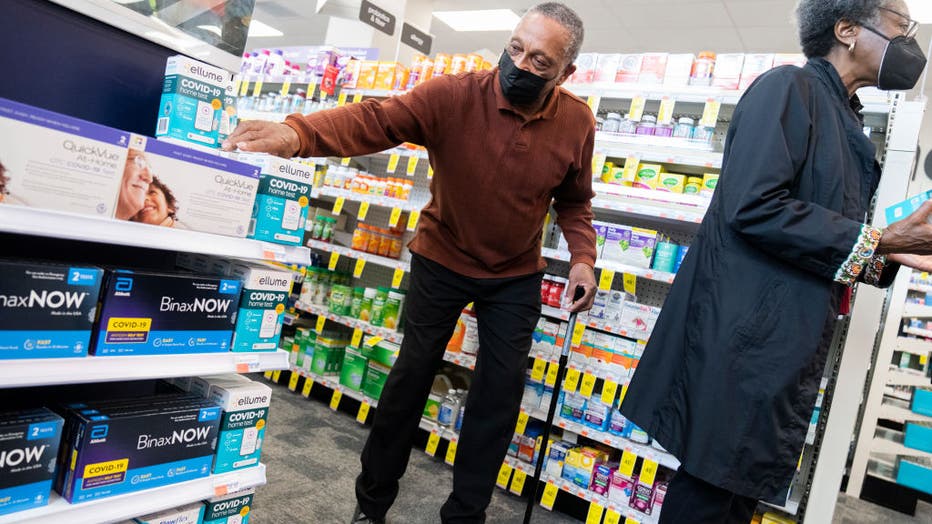Virginians weigh risk of Omicron reinfections

Risk of Omicron reinfection
FOX 5 spoke with Kara Faraj in Clarendon Tuesday night. She says she had COVID, doesn’t want it again but says it doesn’t scare her like it used to.
CLARENDON, Va. - It’s been about five months since the COVID-19 Omicron variant began to surge in the United States.
The rate of positive cases appears to be rising now again with additional Omicron variants developing across the globe.
A defining feature of Omicron was its ability to evade vaccines, but it generally didn’t get people as sick.
Now, Dr. Amesh Adalja with Johns Hopkins Center for Health Security says there is the possibility of an Omicron reinfection as immunity typically wanes between three and six months after the infection.
"Over time, if people, for example, got an Omicron infection in the very early days, their immunity may have started to wane, and they may be susceptible to one of the newer variants like B.A.2, and certainly, in South Africa, they do seem to have B.A.4 and B.A.5, which do seem to get around that immunity easily," Dr. Adalja says.

UNITED STATES - APRIL 4: Guleford Bobo, 75, picks up free COVID-19 home tests covered by Medicare at a CVS in the Navy Yard neighborhood of Washington, D.C., on Monday, April 4, 2022. (Tom Williams/CQ-Roll Call, Inc via Getty Images)
Omicron subvariant BA.2: Health officials call it 'variant of concern'
Dr. Adajila assured FOX 5 that this isn’t cause for alarm though.
A previous infection, vaccination, and a combination of the two helps keep people from getting seriously ill she explained. The vaccines aren’t meant to keep people from getting infected, but from getting seriously ill, something he says the vaccines are excelling at.
Download the FOX 5 DC News App for Local Breaking News and Weather
"Vaccines provide a spectrum of protection," he says. "On one end, it’s infection, on the other, it’s death. So even on the infection, if you get a breakthrough infection, or a re-infection after having hybrid immunity, your COVID-19 bout is not something that’s likely to land you in the hospital, and definitely not something that’s going to kill you."
FOX 5 spoke with Kara Faraj in Clarendon Tuesday night. She says she had COVID, doesn’t want it again but says it doesn’t scare her like it used to.
"I am worried about getting it again, but I am also, everyone’s trying to live their lives again," Faraj said. "It’s been two years plus of us living not normal, and trying to get back to somewhat normal life."

Long term impacts of COVID-19 and omicron variant
Dr. Dr. Munir Ghesani discusses the long term impacts of COVID-19 and the omicron variant.
SUBSCRIBE TO FOX 5 DC ON YOUTUBE
Tacy Gruis hasn’t had COVID, but is vaccinated and boosted. She’s taking precautions.
"Sort of scary. I’m sort of scared about it. That’s why I’m still wearing a mask some places," she said.
Dr. Adalja says people have different risk tolerances based on their health situation and those around them.
But the doctor says the decoupling of case numbers with instances of death and hospitalization is a good sign.
"For most people that have vaccine and infection-induced immunity, or hybrid immunity, or just vaccine-induced immunity, they’re unlikely to be hospitalized for COVID-19. However, there are high-risk individuals, the immunocompromised, the elderly, who may still get a serious case of COVID-19 despite that protection.," Dr. Adalja says. "But for the vast majority of the population, COVID does become a much more manageable, cold-like illness, if they’ve been vaccinated, if they’ve been boosted. All of that drives disease towards the milder side."

